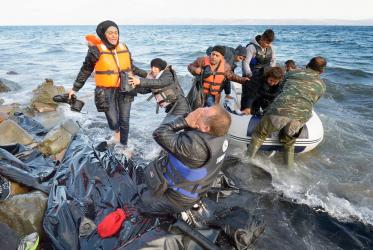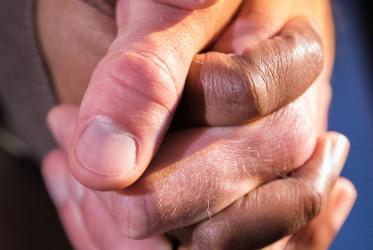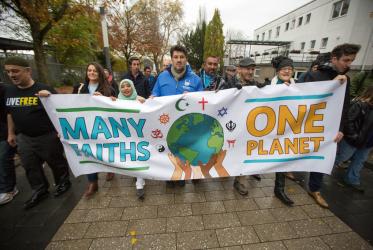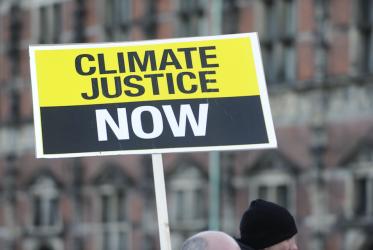Displaying 81 - 100 of 145
Not just numbers, displaced people need to share their stories
01 February 2018
COP 23 “debriefing” brings faith and ethical perspectives
23 January 2018
Ecumenical Patriarch addresses Arctic Circle Assembly
16 October 2017
In South Sudan, times are difficult but churches serve together
16 October 2017
G20 summit: call to pray for peace in Hamburg
07 July 2017
G7 must address famine
22 May 2017
WCC participates in UN panel discussion on climate ethics
15 February 2017
World Council of Churches joins Blue Communities Project
19 October 2016














